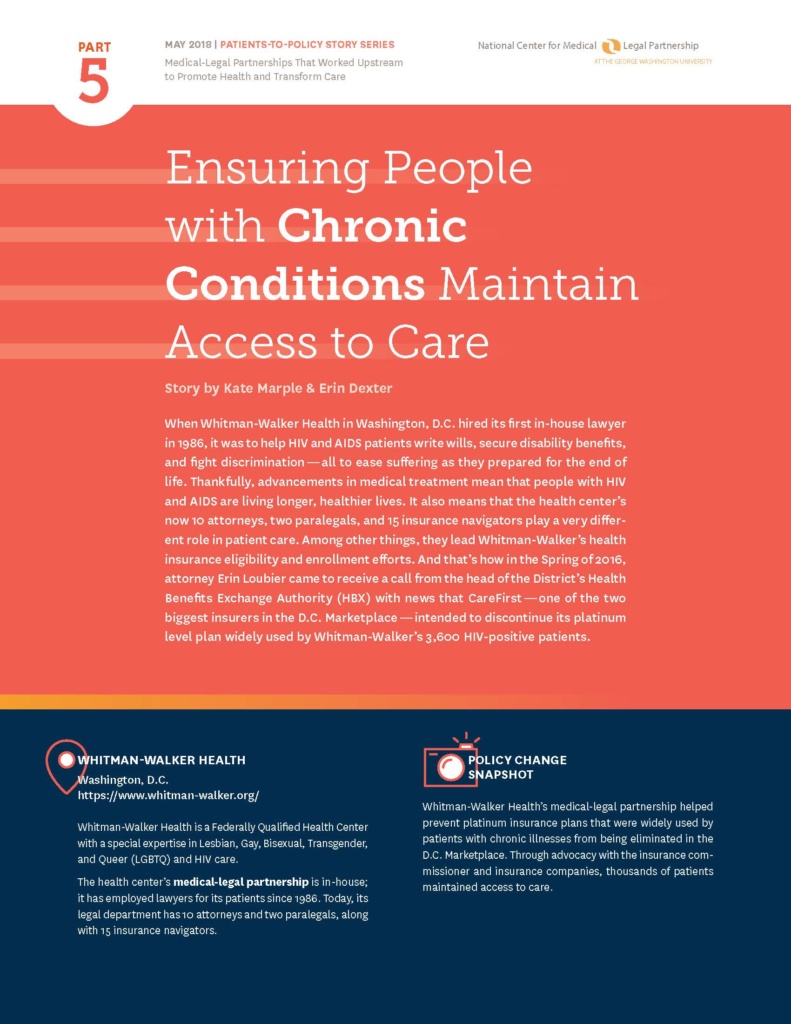Every year medical-legal partnerships help thousands of people in 49 states and the District of Columbia.
Last year, medical-legal partnerships helped more than 75,000 patients resolve legal issues that were impeding good health, trained more than 11,000 health care providers to better understand and screen patients for health-related social needs, and engaged in clinic- and policy-level projects designed to improve health and health equity for entire communities.
Studies show that when legal expertise and services are used to address social needs:
People with chronic illnesses are healthier and admitted to the hospital less frequently, saving health care costs too. Examples include:
-
-
-
- Improved housing conditions led to improved health in asthma patients (Journal of Asthma and Journal of Health Care for the Poor and Underserved).
- Youth with diabetes had significant improvement in their glycemic control (The Diabetes Educator)
- Sickle cell patients were healthier (Pediatrics).
- Health care spending on high-need, high-cost patients was reduced (Health Affairs).
- Families of healthy newborns in a randomized control trial increased their use of preventive health care (Pediatrics).
-
-

People more commonly take their medications as prescribed.
(Journal of Health Care for the Poor and Underserved and Journal of Clinical Oncology)

People report less stress and experience improvements in mental health.
(Journal of Health Care for the Poor and Underserved, Behavioral Medicine, and Health Affairs)

People are more stably housed and their utilities are less likely to be shut off.
(Health Affairs, Housing Studies, and Journal of Health Care for the Poor and Underserved)

People have access to greater financial resources.
One MLP program recovered $300,000 in back benefits for families over a three-year period (Journal of Health Care for the Poor and Underserved), while another recovered more than $500,000 in financial benefits for families over a seven-year period (Journal of Health Care for the Poor and Underserved).

Clinical services are more frequently reimbursed by public and private payers.
Medical-legal partnerships have been shown to save patients health care costs and recover cash benefits (Journal of Health Care for the Poor and Underserved and Journal of Palliative Medicine).
Clinicians have a positive view MLP services.
In our 2016 survey of medical-legal partnership programs across the country, we asked health care organizations to tell us how often clinicians at their hospital or health center anecdotally reported the following benefits of MLP services:
reported improved health outcomes for patients;
![]() reported improved patient compliance with medical treatment; and
reported improved patient compliance with medical treatment; and
![]() reported improved ability to perform “at the top of their license.”
reported improved ability to perform “at the top of their license.”
Medical-legal partnership teams often detect patterns in patients’ needs that reveal opportunities to advance policy solutions for whole communities.
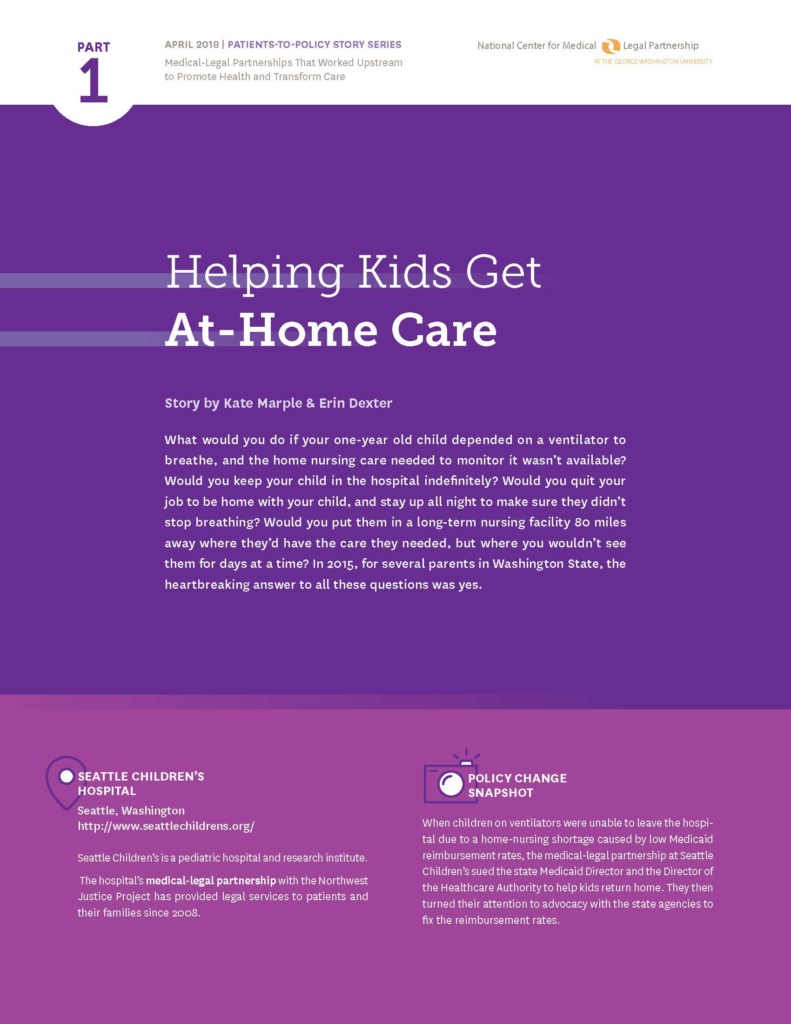
Helping Kids Get At-Home Care
When children on ventilators were unable to leave the hospital due to a home-nursing shortage caused by low Medicaid reimbursement rates, the medical-legal partnership at Seattle Children’s sued the state Medicaid Director and the Director of the Healthcare Authority to help kids return home. They then turned their attention to advocacy with the state agencies to fix the reimbursement rates. Read the story.
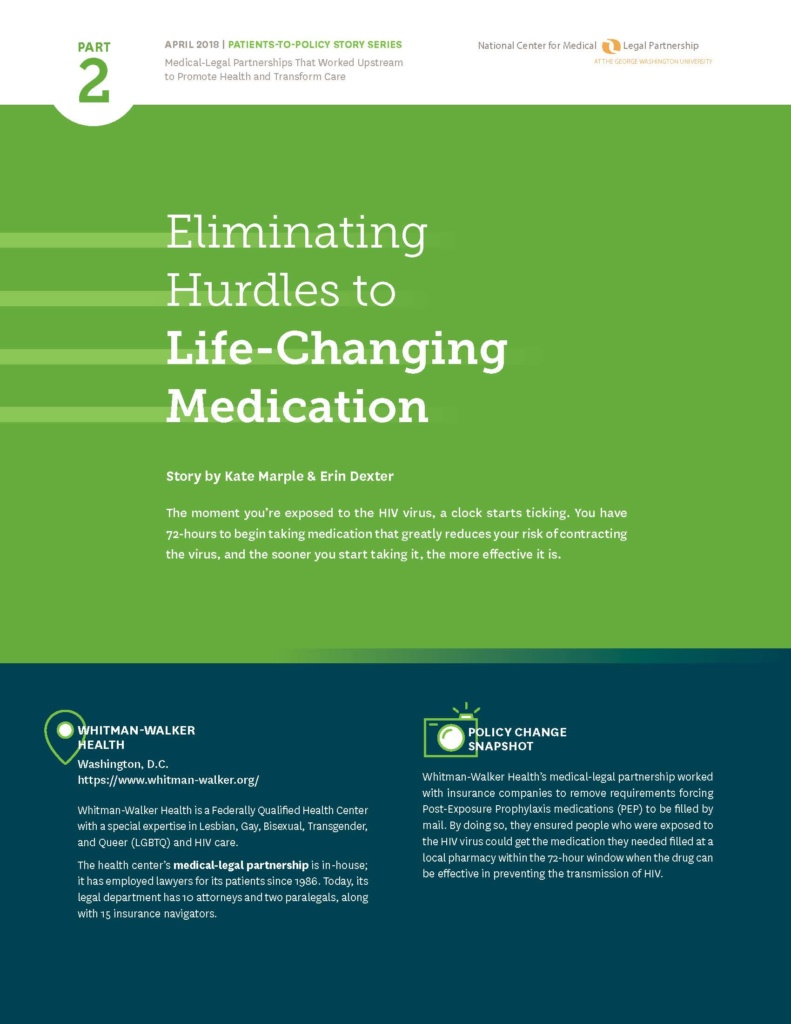
Eliminating Hurdles to Life Saving Medication
Whitman-Walker Health’s medical-legal partnership worked with insurance companies to remove requirements forcing Post-Exposure Prophylaxis medications (PEP) to be filled by mail. By doing so, they ensured people who were exposed to the HIV virus could get the medication they needed filled at a local pharmacy within the 72-hour window when the drug can be effective in preventing the transmission of HIV. Read the story.
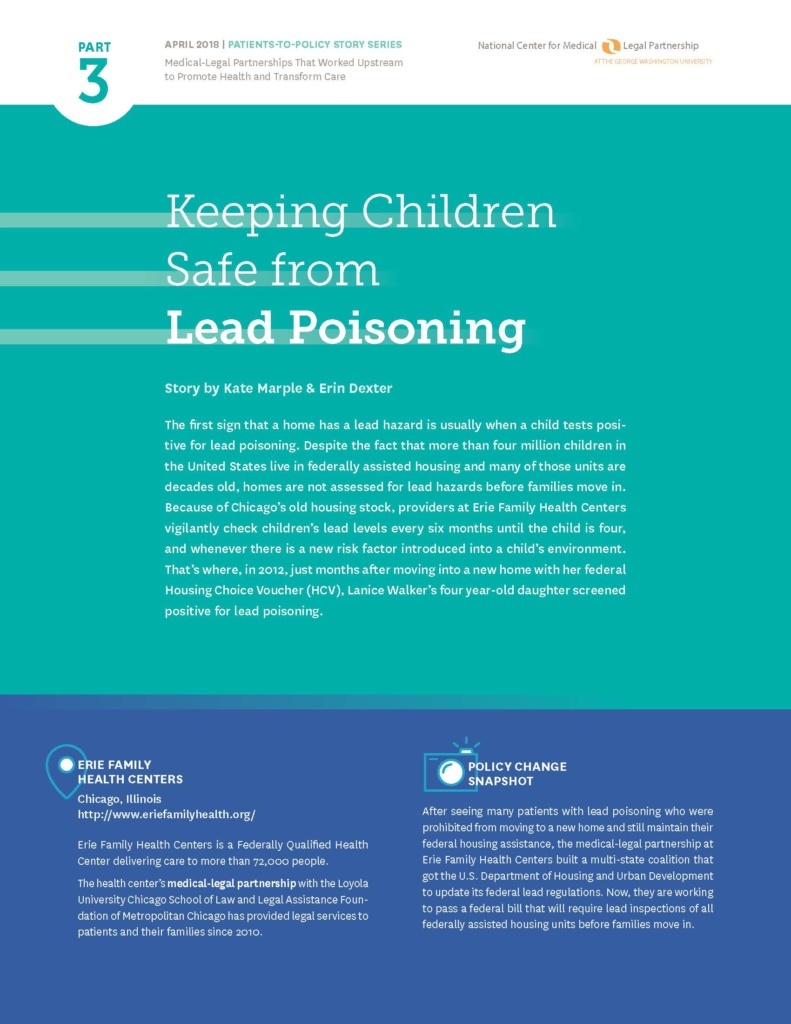
Keeping Children Safe From Lead Poisoning
After seeing many patients with lead poisoning who were prohibited from moving to a new home and still maintain their federal housing assistance, the medical-legal partnership at Erie Family Health Centers built a multi-state coalition that got the U.S. Department of Housing and Urban Development to update its federal lead regulations. Now, they are working to pass a federal bill that will require lead inspections of all federally assisted housing units before families move in. Read the story.
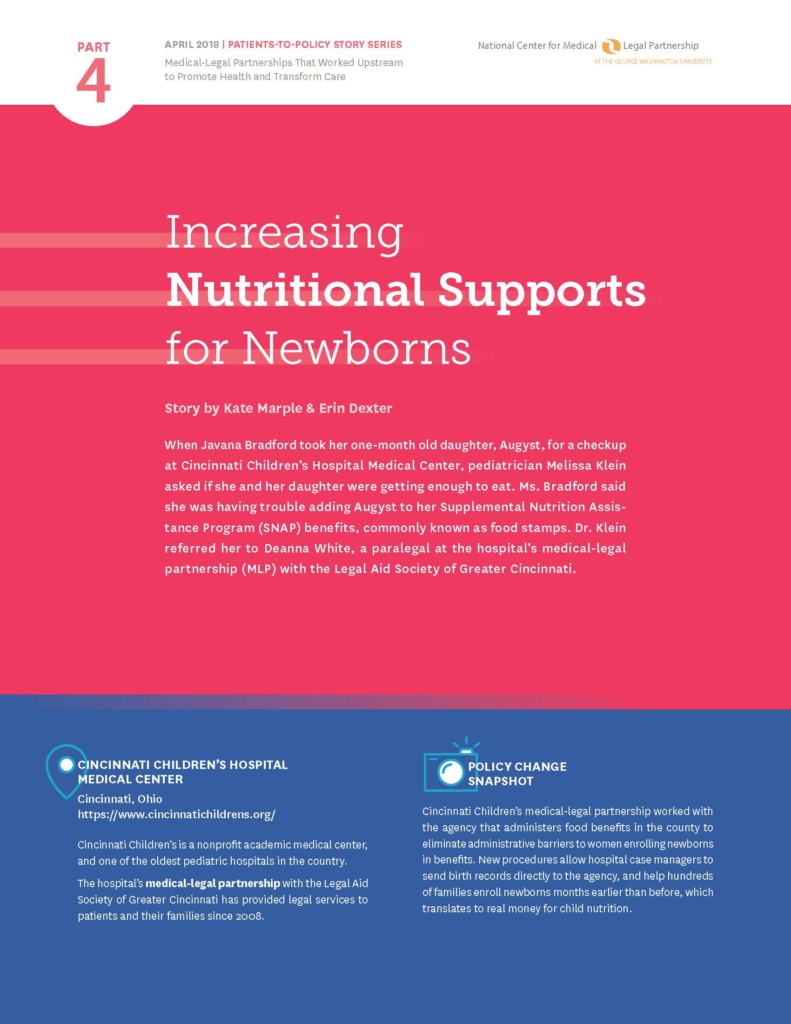
Increasing Nutritional Supports for Newborns
Cincinnati Children’s medical-legal partnership worked with the agency that administers food benefits in the county to eliminate administrative barriers to enrolling newborns in benefits. New procedures allow hospital case managers to send birth records directly to the agency, and help hundreds of families enroll newborns months earlier than before, which translates to real money for child nutrition. Read the story.
Ensuring People with Chronic Conditions Maintain Access to Care
Whitman-Walker Health’s medical-legal partnership helped prevent platinum insurance plans that were widely used by patients with chronic illnesses from being eliminated in the D.C. Marketplace. Through advocacy with the insurance commissioner and insurance companies, thousands of patients maintained access to care. Read the story.


